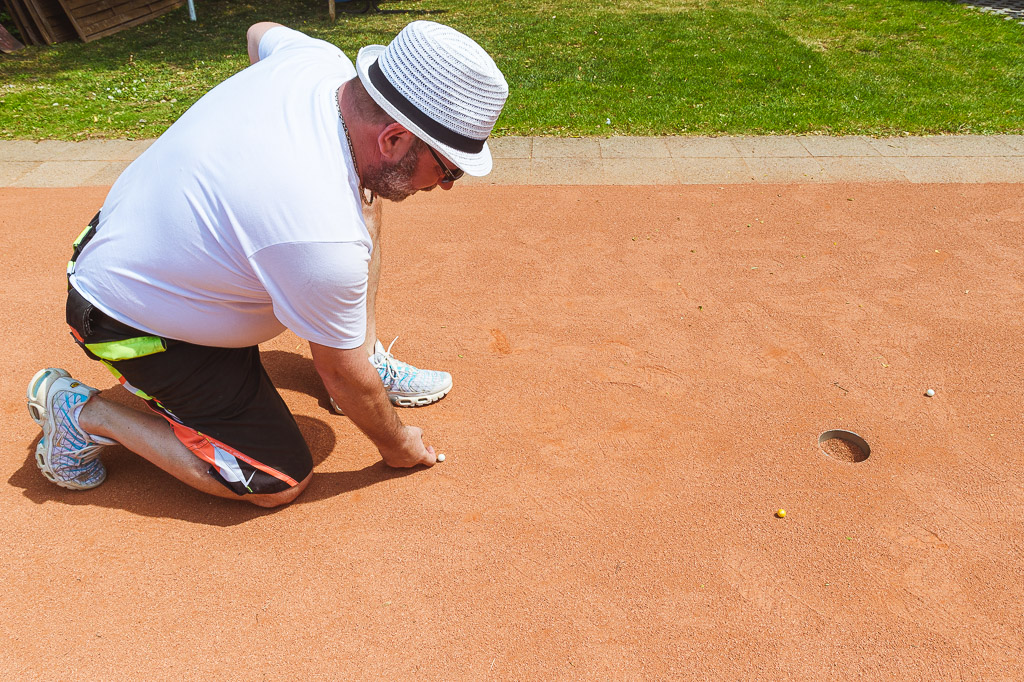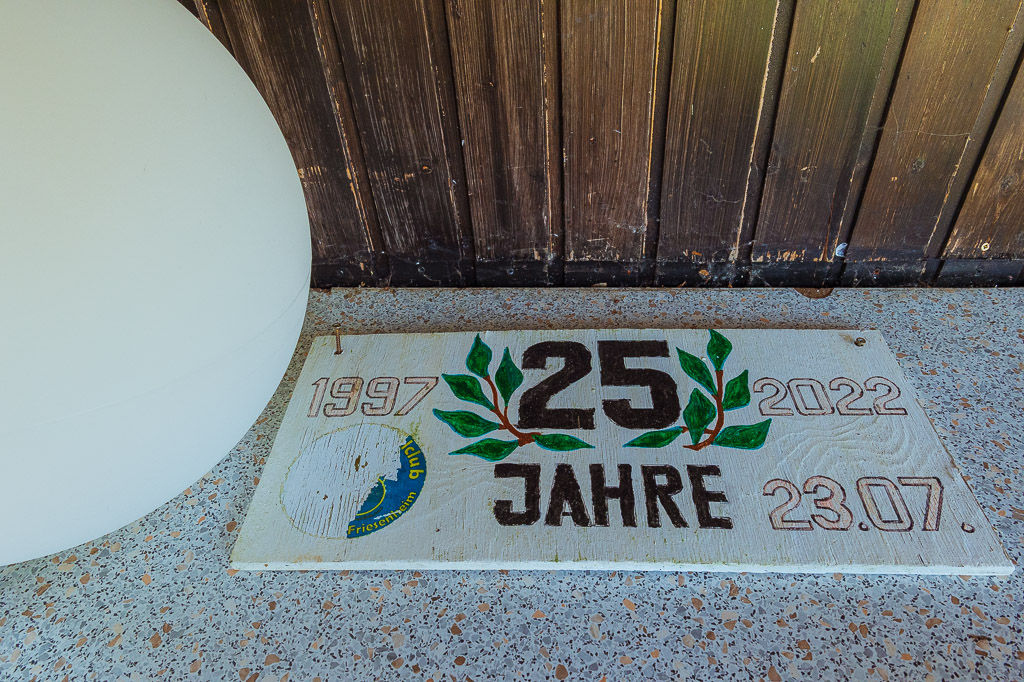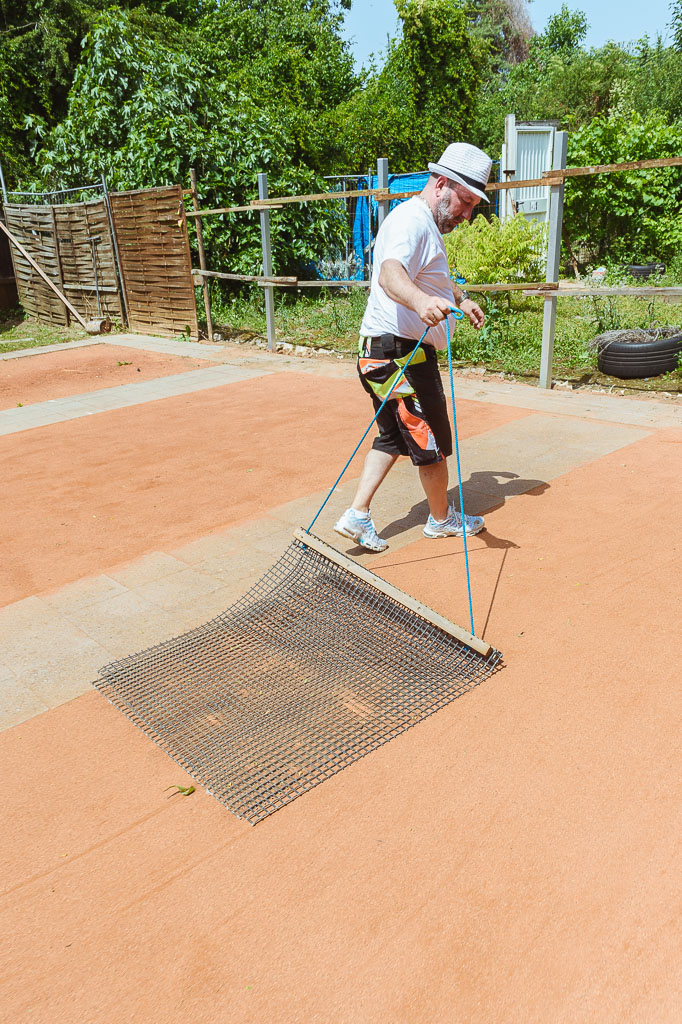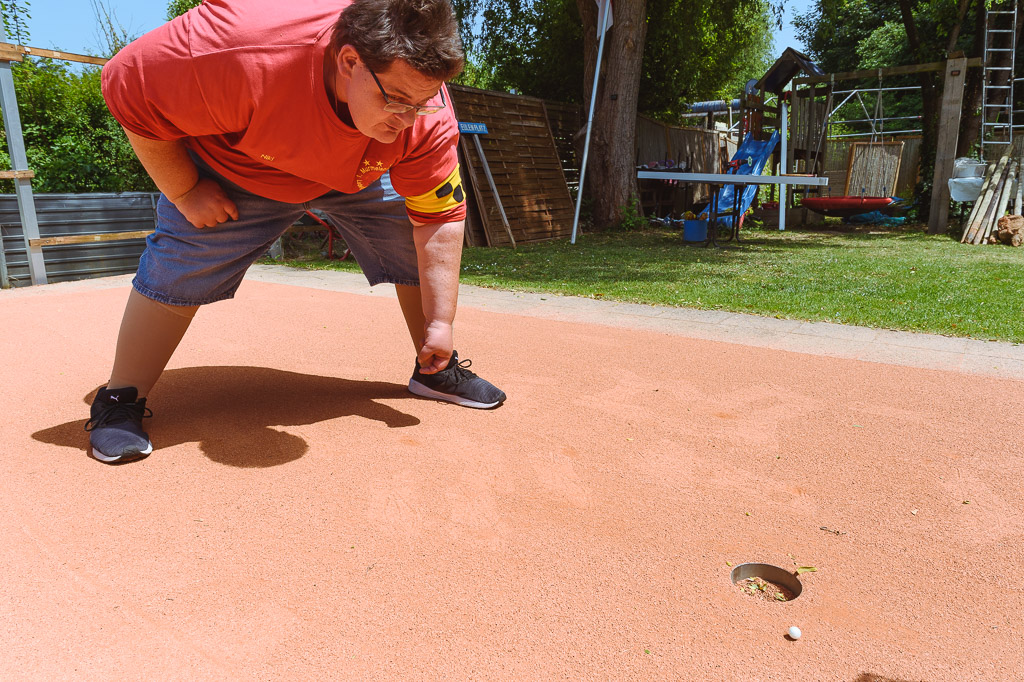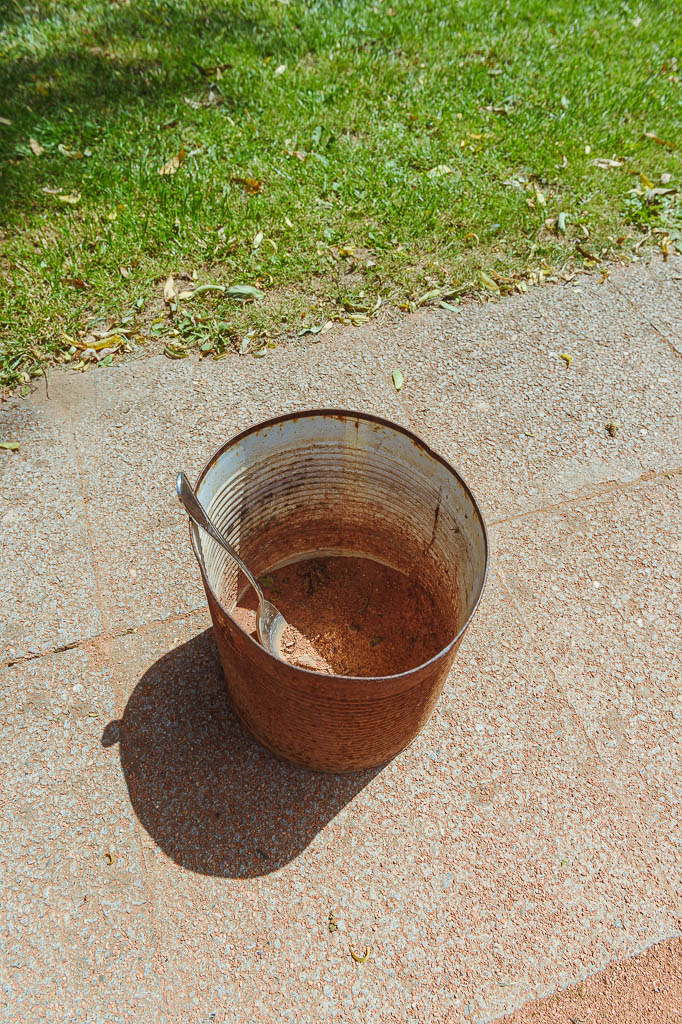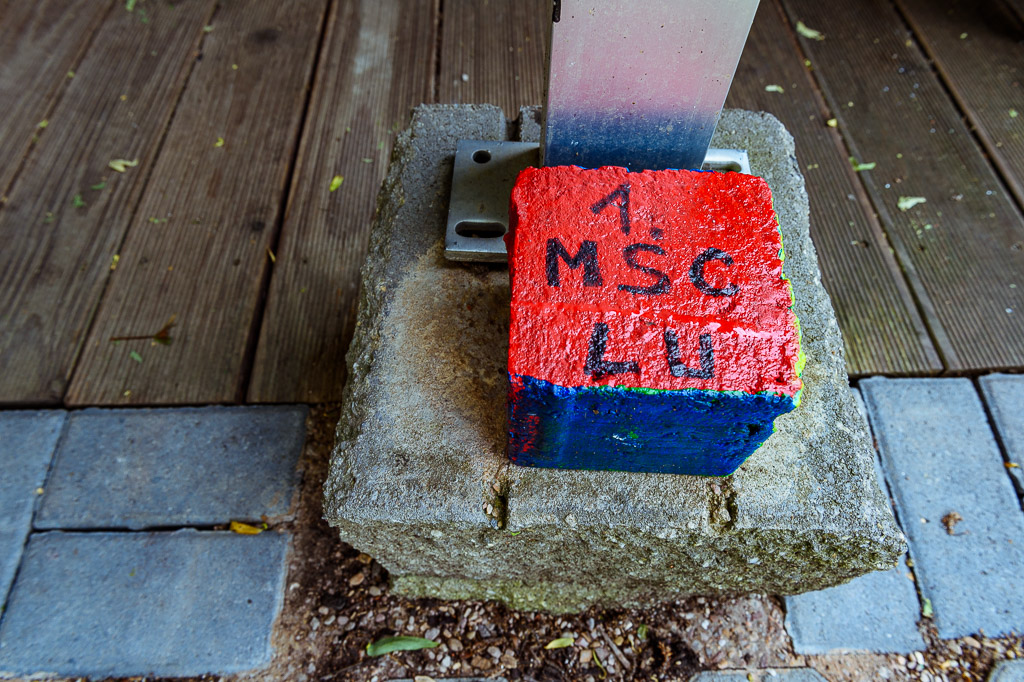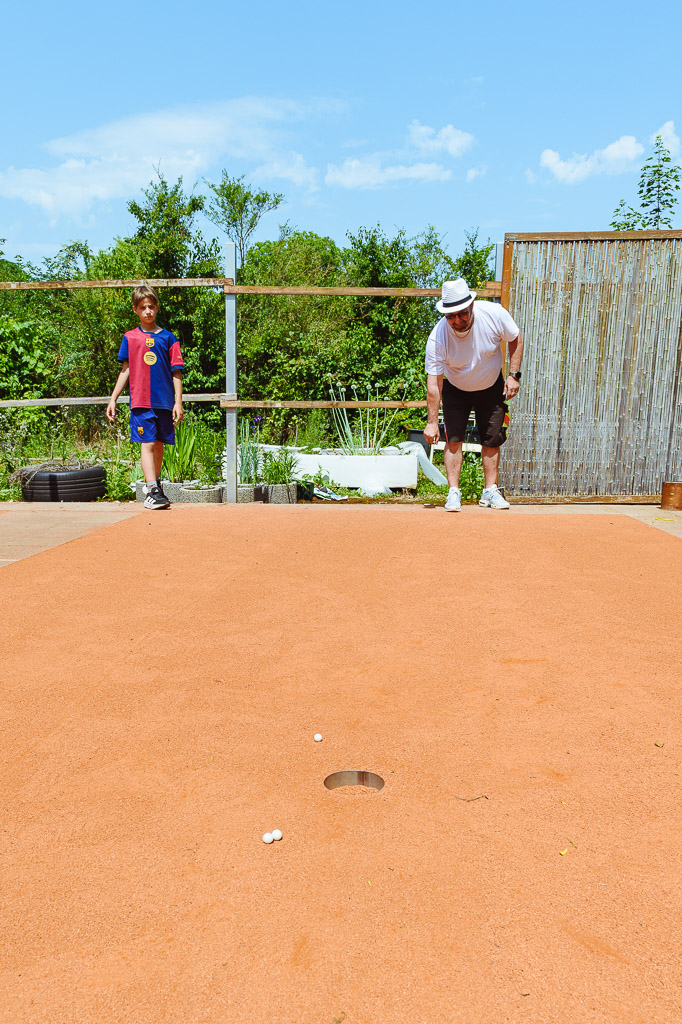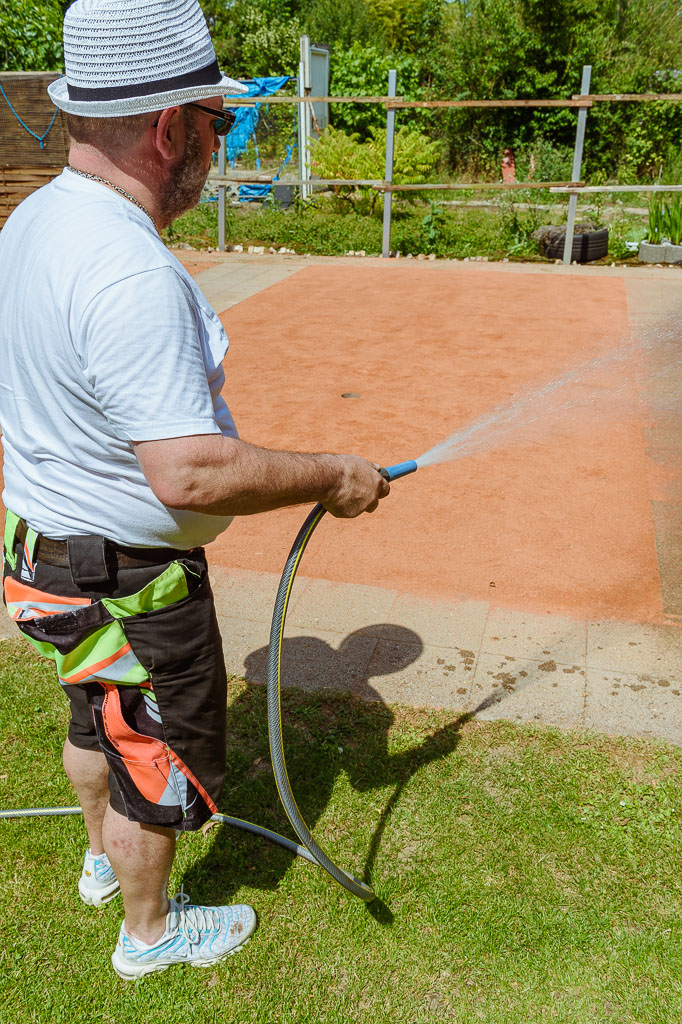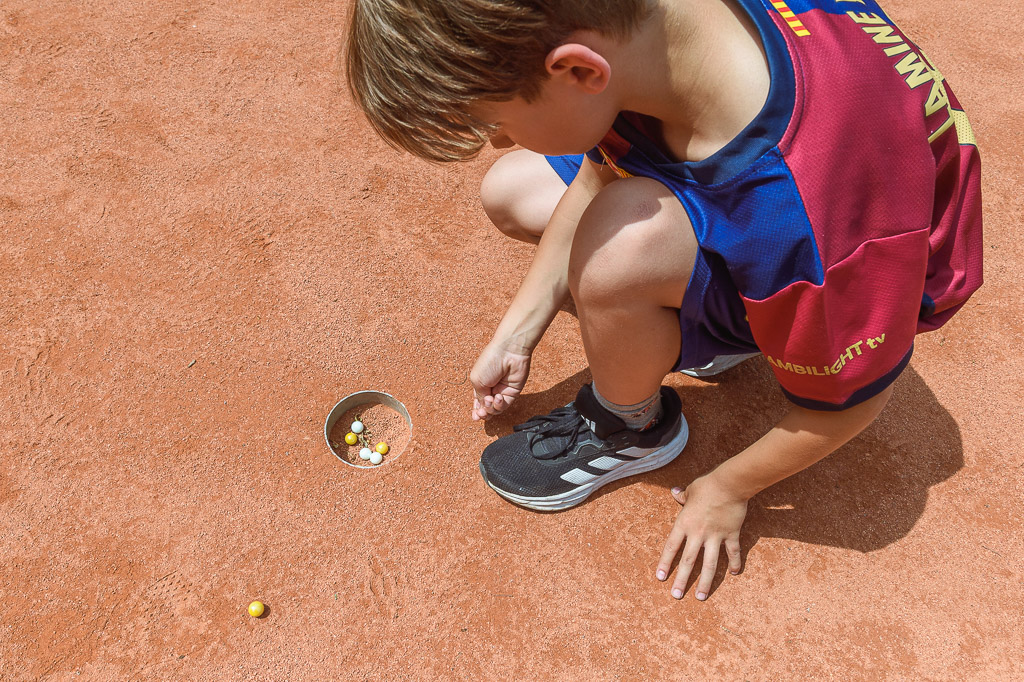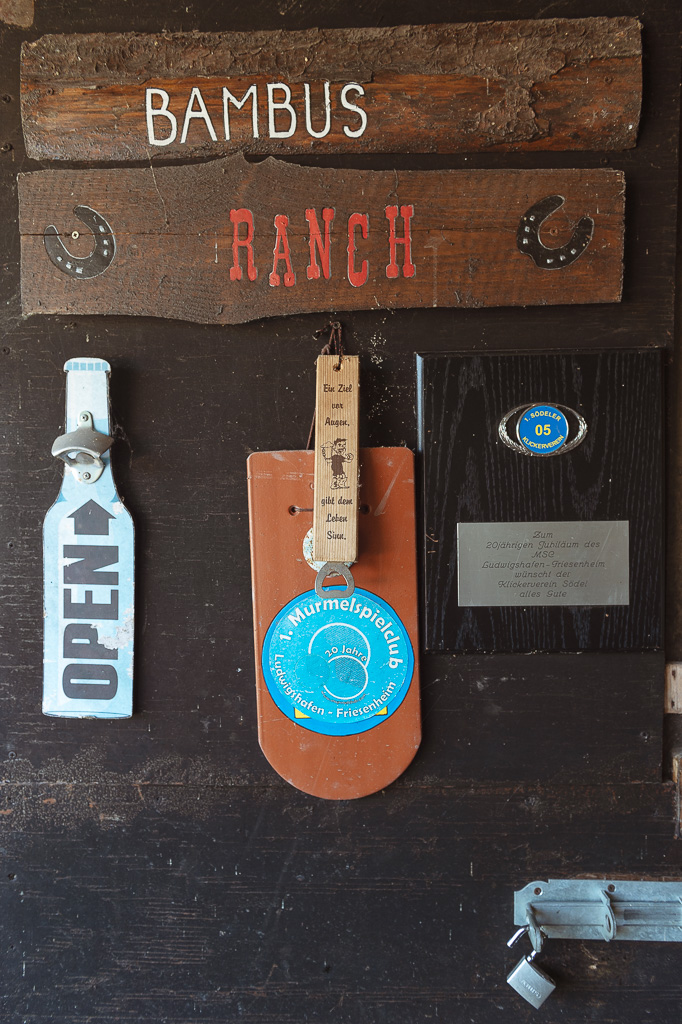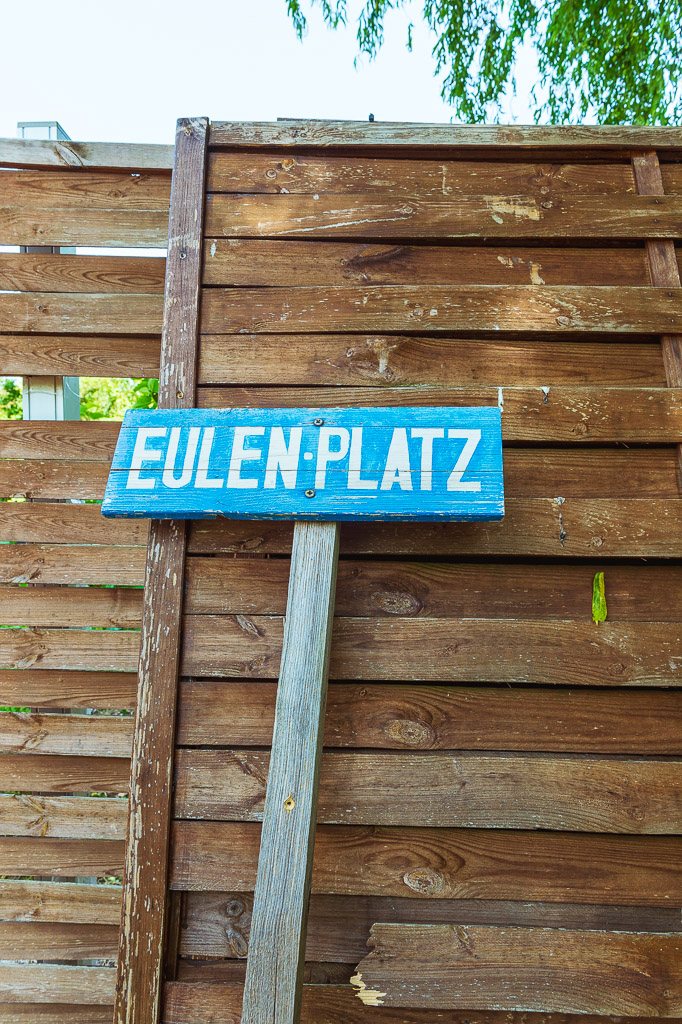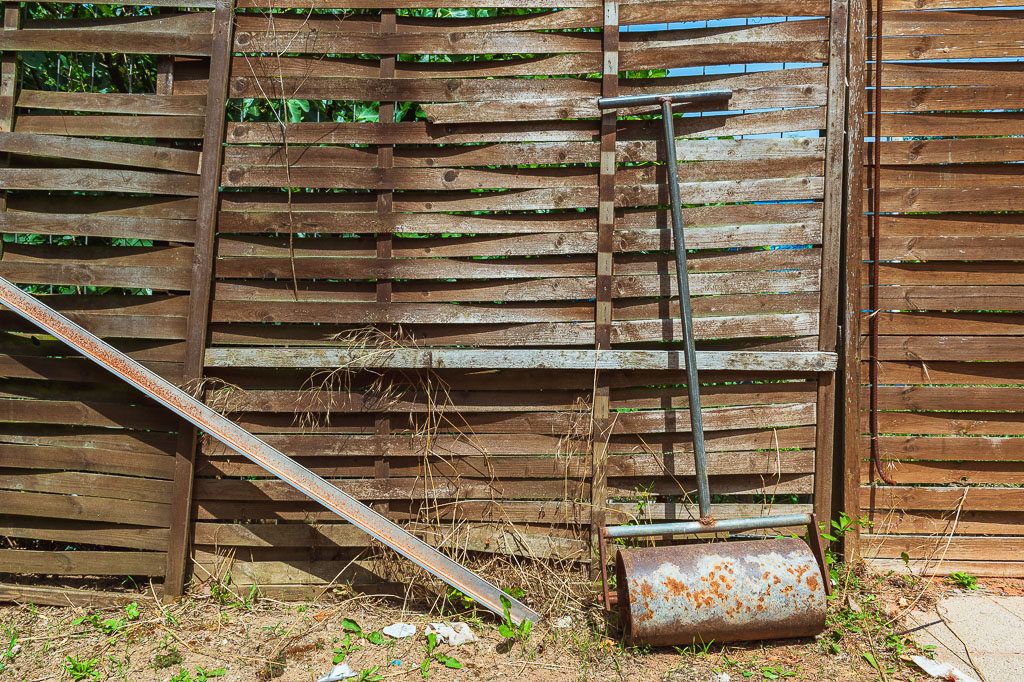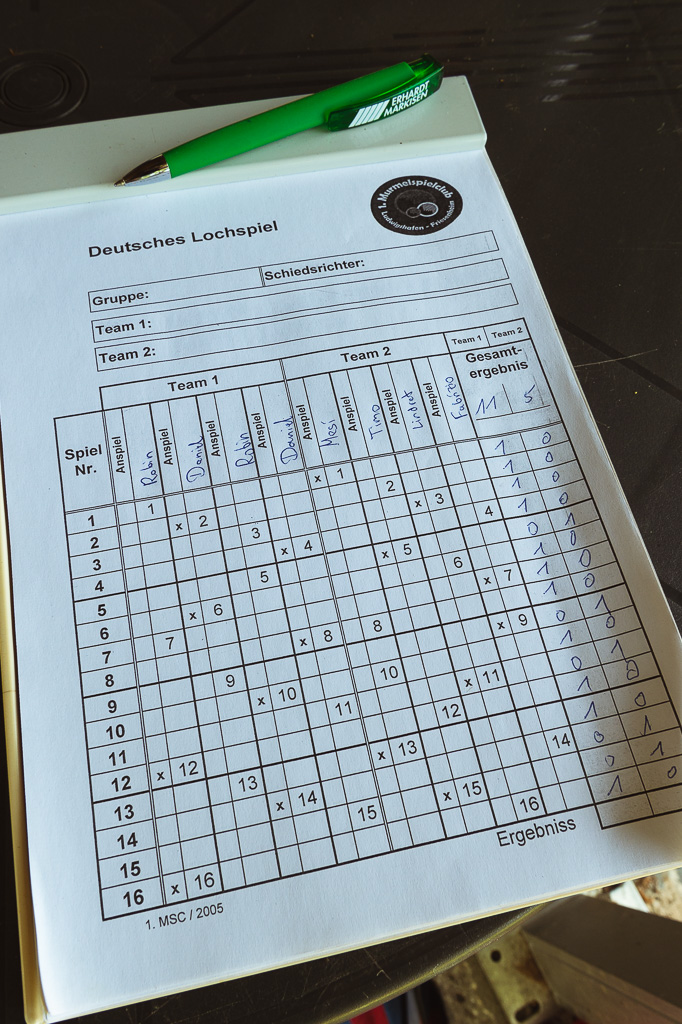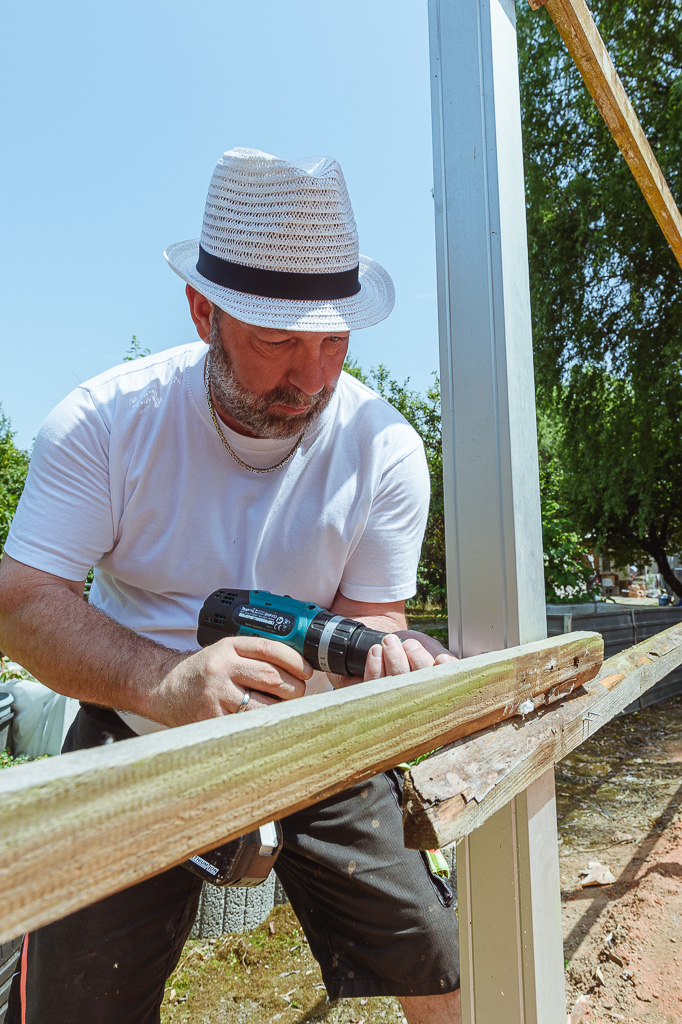This sport is (not only) child’s play. We are at the Bambus Murmel Ranch of the Murmelspielclub marble club in Ludwigshafen, and here it’s all about concentration, skill and luck—and above all, about a sense of community.
The small clay balls glisten in the sun. Niki Stroh takes three white ones out of the case, Theo-Heinz Adrian three yellow ones. And off they go! They shake hands with solemn seriousness. Niki crouches down and gives his marbles such a skilful tap on the red ash field that the club chairman Theo-Heinz already suspects that this game will not last long. Just a few moves later, the young man has won the round sinking the last ball into the round hollow. Theo-Heinz takes it with humour, and with some pride, too. At the grounds of the Ludwigshafen Bambus Murmel Ranch there is a clear favourite—even though Niki is nearly blind.

Niki is a member of the Murmelspielclub marble club in Ludwigshafen and probably one of the most unusual coaches in Germany, because his vision is only three to five per cent so that he can only guess rather than see where the 16-millimetre small marble lies. “But I can feel exactly where it is,” he says. You believe him clearly, because he shoots each marble with such incredible confidence. Every Saturday afternoon, he calls his team together for training. The 1. Murmelspielclub Ludwigshafen-Friesenheim 1997 e.V., as the club is officially called, has won the German championships three times and is vice world champion in German hole play.
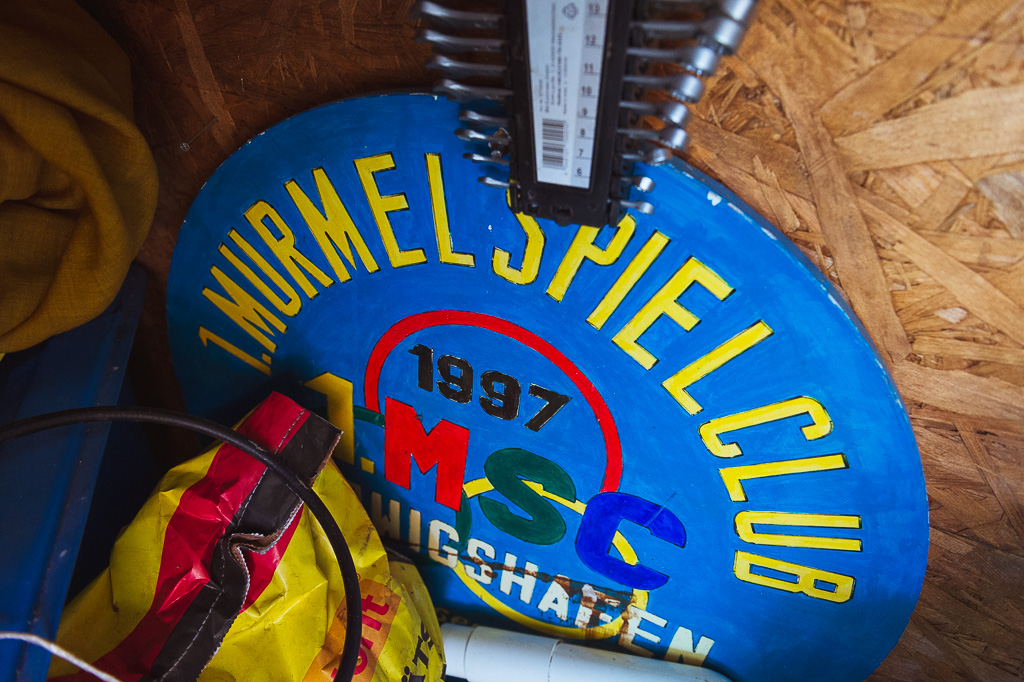
“At the beginning, we thought we were the only crazy ones,” says club founder Theo-Heinz and laughs. When the landlord of a pub put a washing powder box full of marbles on his regulars’ table a long time ago, they spontaneously founded the club, not knowing anything about the German Marble Council, the rules of the game and the geographical distribution of this unusual discipline. Today there are 19 clubs throughout Germany, the youngest of which is probably the one in the town of Weisenheim am Sand in the Palatinate region. The Ludwigshafen club is the southernmost.
